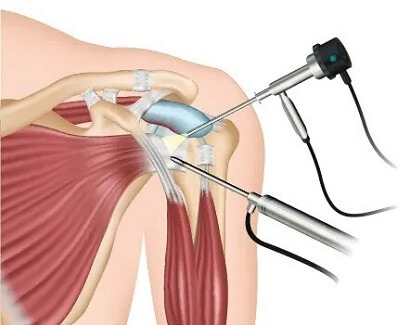How Long Does It Take A Dislocated Shoulder To Heal – Speeding Up Shoulder Recovery!
A dislocated shoulder typically takes 6 to 12 weeks to heal, depending on the severity of the injury and treatment. Mild dislocations heal in 4–6 weeks, while severe cases may take several months.
In this article, we will explore the recovery timeline, factors affecting healing, and tips to speed up your recovery from a dislocated shoulder.
What is a Dislocated Shoulder?

The shoulder is the body’s most mobile joint, but this flexibility can also make it more susceptible to dislocations. A dislocated shoulder happens when the humeral head (ball of the upper arm bone) pops out of the shallow socket in the scapula (shoulder blade). This can occur due to trauma such as a fall, sports injury, or accident.
How Long Does a Dislocated Shoulder Take to Heal?
The recovery time for a dislocated shoulder varies depending on the severity of the injury, treatment methods, and whether any additional damage, such as fractures or torn ligaments, occurs. Generally, it takes around 6 to 12 weeks for a dislocated shoulder to heal fully, but the timeline may differ based on the individual.
Mild Dislocations: (Subluxations)
In the case of a mild dislocation or subluxation, where the joint partially comes out of its socket and returns on its own, recovery may take around 4 to 6 weeks. However, even with a mild injury, rest, ice, and physical therapy are crucial for full recovery.
Also Read: Why Does My Body Heal Unatuuarly Quickly – Youth and Healing Speed!
Complete Dislocations:
For a full dislocation where the shoulder joint is completely displaced, the healing process can take anywhere from 6 to 12 weeks, depending on the extent of the injury. After the joint is relocated, pain management, immobilization, and a structured rehabilitation program will be necessary to restore strength and mobility.
Severe Dislocations with Fractures or Ligament Damage:
In more severe cases, where there is a fracture in the bone or damage to the ligaments, healing may take longer—often 12 weeks or more. Surgery may be required in some instances, especially if the shoulder’s ligaments or cartilage are torn, and recovery could extend beyond 6 months with physical therapy.
Phases of Healing for a Dislocated Shoulder:

Understanding the healing phases can help set realistic expectations and plan your recovery.
Acute Phase: (First 1–2 Weeks)
The initial focus is to reduce pain, swelling, and inflammation. Rest and ice are critical during this stage. Your doctor may advise using a sling to keep the shoulder immobilized and prevent further strain. Avoid any activities that may put stress on the shoulder joint during this time. Follow your doctor’s guidance on medication for pain relief.
Subacute Phase: (2–6 Weeks)
Once the acute pain subsides, gentle range-of-motion exercises may begin, depending on your doctor’s recommendations. Gradual movement will help restore flexibility and prevent stiffness. It’s essential to follow a structured exercise plan to ensure proper healing. This phase helps in preventing the shoulder from becoming too rigid or weak.
Also Read: How Long Does A Friction Burn Take To Heal – Friction Burn Recovery Tips!
Rehabilitation Phase: (6+ Weeks)
Physical therapy plays a key role in rebuilding strength and stability in the shoulder. Exercises to strengthen the muscles surrounding the shoulder will improve function and reduce the likelihood of future dislocations. This phase typically involves strengthening the rotator cuff and other stabilizing muscles. Regular follow-ups with your therapist are crucial to track progress and adjust exercises as needed.
Factors That Affect Shoulder Healing Time:

Several factors can influence how long it takes a dislocated shoulder to heal, including:
- Age: Younger individuals typically heal faster than older adults.
- Severity of Injury: A complete dislocation will take longer to heal than a mild subluxation.
- Treatment and Rehabilitation: Early intervention, proper treatment, and adherence to a rehabilitation plan can significantly speed up recovery.
- Complications: If additional injuries like fractures, torn ligaments, or nerve damage occur, recovery may be extended.
How to Speed Up Recovery?
While healing takes time, there are steps you can take to accelerate recovery:
- Follow Your Doctor’s Advice: Be diligent about following your doctor’s treatment plan, including resting, icing, and taking medications as prescribed.
- Engage in Physical Therapy: Start rehabilitation exercises as soon as you’re able to restore strength, flexibility, and mobility.
- Avoid Re-Injury: Be cautious when resuming physical activities, as returning to exercise too soon can lead to reinjury.
- Stay Hydrated and Eat Well: Proper nutrition and hydration play a role in muscle recovery and overall healing.
When to Seek Medical Help?
While most shoulder dislocations can be managed with conservative care, seek medical attention immediately if you experience:
- Persistent pain or swelling that doesn’t improve
- Difficulty moving the shoulder after the joint is relocated
- Numbness, tingling, or weakness in the arm or hand
- Any signs of infection, such as increased redness or warmth at the injury site
Also Read: How Long Does A Hamstring Strain Take To Heal – Hamstring Injury Healing Time!
Preventing Future Dislocations:
Once your shoulder has healed, it’s important to take steps to prevent future dislocations:
- Strengthen Shoulder Muscles: Engage in exercises that target the muscles around the shoulder, such as the rotator cuff, to provide better stability.
- Proper Warm-Up: Always warm up before engaging in any physical activity to prepare the shoulder joint for movement.
- Avoid Risky Activities: Be mindful of activities that could put excessive stress on the shoulder, especially high-impact sports.
FAQ’s
1. How long does it take for a mild dislocated shoulder to heal?
Mild dislocations typically heal in 4 to 6 weeks with proper rest and rehabilitation.
2. What is the healing time for a complete dislocated shoulder?
Complete dislocations usually heal in 6 to 12 weeks, depending on severity.
3. Can recovery time be longer for severe dislocations?
Yes, severe dislocations with fractures or ligament damage can take over 12 weeks and may require surgery.
4. What helps speed up recovery from a dislocated shoulder?
Following your doctor’s treatment plan, engaging in physical therapy, and maintaining proper nutrition can accelerate recovery.
5. When should I seek medical attention for a dislocated shoulder?
Seek medical help if you experience persistent pain, difficulty moving the shoulder, or signs of infection.
Conclusion
A dislocated shoulder can be painful, but with proper care, most recover within a few months. Healing time depends on the injury’s severity. By following your doctor’s guidance, engaging in physical therapy, and allowing sufficient rest, you’ll regain strength and stability. Understanding the recovery process helps ensure a quicker healing and lowers the risk of future dislocations.






